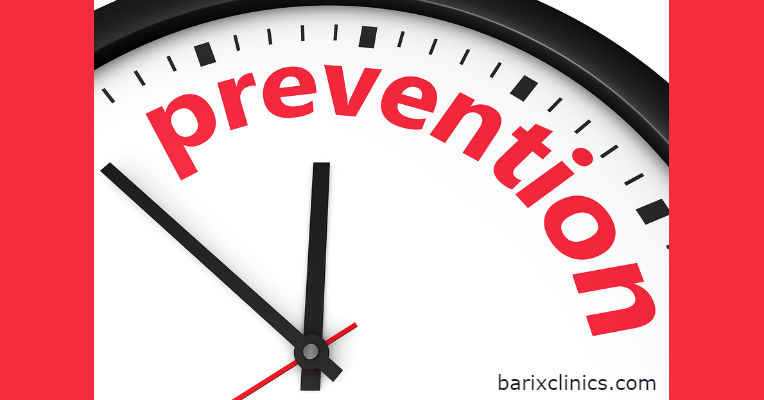Bottom line: What can you do to reduce your risk?
It’s well-accepted that your chances of developing cancer are affected by the lifestyle choices you make. Some simple lifestyle changes can make a big difference:
Don’t use tobacco and avoid exposure to secondhand smoke.
Eat a healthy diet
Eat mostly a plant-based diet with plenty of fruits, vegetables, legumes, nuts and whole grains
Avoid added sugars
If you choose to drink alcohol, do so only in moderation
Limit processed meats, saturated fats and red meats
Maintain a healthy weight
Get regular physical exercise
Protect yourself from the sun
Get immunized
Get regular medical care and screenings
Why fruits and vegetables?
Fruit and vegetables are low in fat, rich in fiber and stocked with cancer-fighting nutrients. They support your immune system and help your body fight off cancer. Most people need to double the amount of vegetables and fruits they eat to stay healthy and help prevent or fight cancer.
| Eat fish once or twice a week. Good choices include wild salmon, sardines, herring, and sablefish (black cod. | Limit fast food, fried foods, and packaged foods, which tend to be high in unhealthy fat. This includes foods like pizza, potato chips, cookies, crackers, French fries, and doughnuts. |
| Cook with olive oil instead of vegetable oil or other unsaturated oil unless it’s cold-pressed. Only cold-pressed oils are made without the use of high heat or toxic chemicals. | Check the ingredient list on food labels and avoid anything with “hydrogenated” or “partially hydrogenated” oils. |
| Eat foods rich in healthy fiber. Select raspberries, apples, pears, strawberries, bananas, blackberries, prunes, beans, and lentils, whole grains, broccoli, spinach, dark green leafy vegetables, peas, artichoke, corn, carrots, tomatoes, Brussels sprouts. | Do not cook fats and oils on high heat. Low-heat cooking or baking (less than 240 degrees) prevents oils or fats from turning carcinogenic. Bake, boil, steam, broil, or use a slow-cooker. |
| Use flaxseed oil in smoothies or salad dressings. It loses it’s protective properties when heated so don’t cook with it. | Don’t bbq on high heat. Burning or charring meats creates carcinogenic substances. Cook at lower temperatures and don’t overcook meats. |
| Eat 100 calorie portions of nuts and seeds. Good choices include walnuts, almonds, pumpkin seeds, hazelnuts, pecans, and sesame seeds. | Avoid foods that look or smell moldy, they may contain a strong carcinogen, aflatoxin.
|
| Choose fresh meats, ideally organic and grass-fed, instead of processed meat that has been cured, dried, preserved, or smoked. | Don’t use plastic containers or cover food with plastic wrap to be heated in the microwave. Use waxed paper and microwave-safe containers.
|
| Wash all fruits and vegetables. Use a vegetable brush for washing. Washing does not eliminate all pesticide residue, but will reduce it. Purchase organic produce if possible. | Don’t forget to spice things up. Immune-boosting herbs and spices include garlic, ginger, and curry, turmeric, basil, rosemary, and coriander. |


